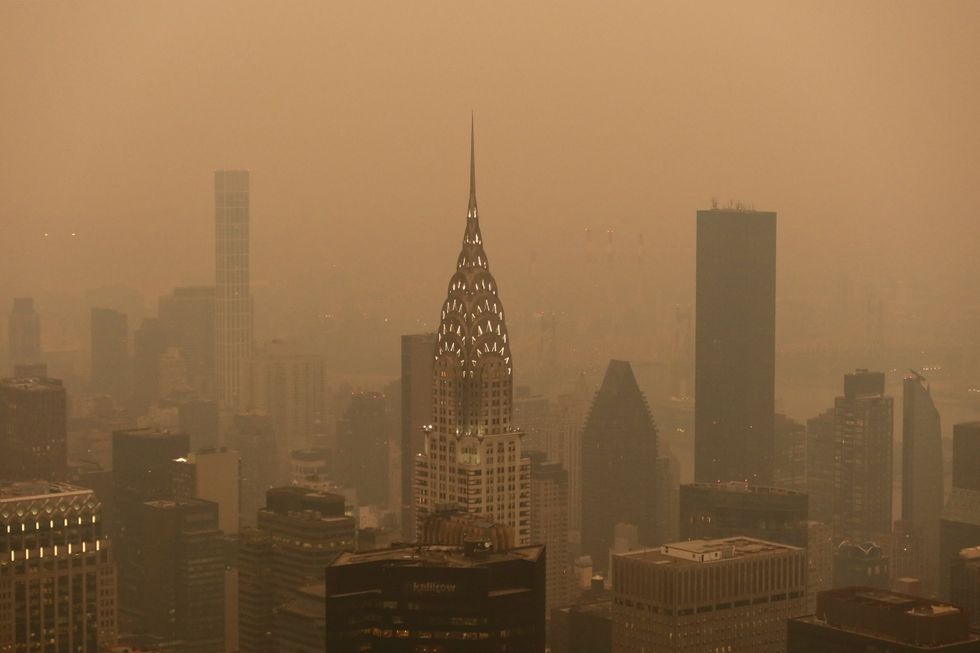I find it incredibly fitting that I decided to start watching the show Extrapolations this week.
For those of you that don’t know, Extrapolations is a drama series that explores what our everyday realities might look like in the near-future if we do not act on the issue of climate change. While it is a fictional series, believe me when I say that it is very plausible.
The pilot episode starts in the year 2037 and focuses mainly on collapsing icebergs and the rising sea levels/population displacement that occurs because of it, and widespread wildfires across the globe. It feels very dystopian but eerily familiar. Almost as if we aren’t watching fiction at all.
The reason I say it is fitting is because if you are in Canada right now (week of June 5th, 2023), you know that the forests in your backyard are burning. The 2023 Central Canada Wildfires are blazing and having far-reaching effects. Populations in the United States are suffering from some of the worst air qualities in the world. While New York City and nearby East Coast cities are being hit hard with the brunt of dangerous haze, even states as far West as Oklahoma are facing air quality alerts.
I live in one of those East Coast cities and I can tell you firsthand that it feels very ominous when you step outside. The smell of burning trees and wildlife is pungent and the particles in the air make your eyes tear up uncontrollably.
So, back to my thoughts on the show. There are a few things I would like to say about Extrapolations.
To begin, I believe everyone should watch it and seriously take time to digest each episode. Sit with your emotions, do research, talk to loved ones, and know that you aren’t alone if you have a deep feeling of mourning. It’s not a show I would binge, especially if you have climate anxiety (like me!) to begin with.
Second, I want to give a trigger warning. This show is heavy. It is disturbing. But it is also very powerful. Most content that we get concerning climate change is nonfiction, so this show being a realistically-done narrative piece is striking. It feels removed from us and our day-to-day realities, but at the same time feels very current. Climate strikes and protests are happening NOW. Forests are burning NOW. Icecaps are melting NOW. Millions of people are being displaced from their homes and forced to become refugees NOW. It’s a scary realization that the future fiction we are watching on the screen is actually a current reality.
And lastly, while it may feel very disturbing to watch, that is precisely why I urge you to do so. I cried in the second episode (not going to spoil anything, but when you watch it, I believe you’ll know the exact moment) but then it led me to work through my emotions and write this piece. The reason I urge people to do their own research, read the articles, watch the documentaries, and watch Extrapolations is because knowledge is truly power.
While it may be uncomfortable and upsetting to become aware of current realities, it is empowering to take that knowledge and use your unique gifts to go and do something about it. We are not helpless in this narrative, and we can save ourselves.
It’s time to stop kicking the “climate crisis can” to future generations, once and for all.

















